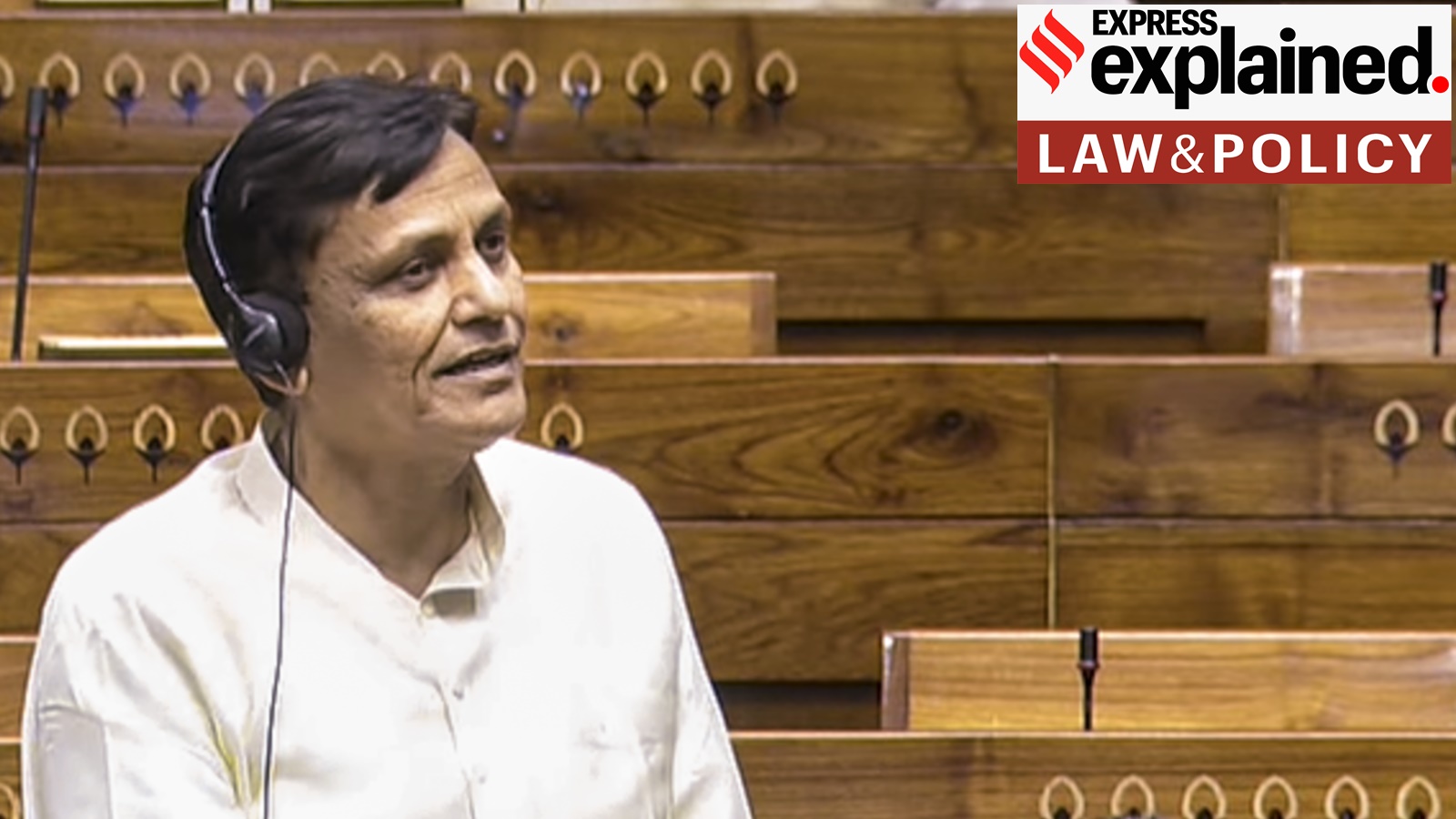Immigration and Foreigners Bill, 2025 in Parliament: Its provisions, criticism
The government said the Bill is aimed at strengthening India’s borders and streamlining the law governing immigration and foreigners. What changes does it bring in?
 The Immigration and Foreigners Bill, 2025 was introduced in Parliament by MoS for Home Nityanand Rai on March 11. (Photo: PTI)
The Immigration and Foreigners Bill, 2025 was introduced in Parliament by MoS for Home Nityanand Rai on March 11. (Photo: PTI) The Union government on Tuesday introduced in the Lok Sabha The Immigration and Foreigners Bill, 2025, which it said is aimed at strengthening India’s borders and streamlining the law governing immigration and foreigners.
The Bill repeals and replaces the Immigration (Carriers’ Liability) Act, 2000, and three pre-independence laws, the Passport (Entry into India) Act, 1920, the Registration of Foreigners Act, 1939, and the Foreigners Act, 1936.
The Statement of Objects and Reasons submitted alongside the Bill mention that the Acts “are not only of pre-Constitution period, but also, they were brought into extraordinary times of first and second world wars”. It also notes that there are overlapping provisions and that there is a necessity to enact a comprehensive legislation. What changes does the Bill introduce?
Bureau of Immigration and restrictions on foreigners
The Bill would establish an overarching Bureau of Immigration (Section 5) with a Commissioner at its head, who will be assisted by Foreigners Regional Registration Officers, Foreigners Registration Officers, Chief Immigration Officers and other Immigration officers designated by the Centre. The Bureau will fall under the Centre and will be in charge of performing “immigration functions” such as regulating the entry and exit of foreigners along with any other functions that the Centre prescribes.
It would also empower the Central government to pass orders or directions regarding foreigners (Section 7) including:
Requirements for foreigners to enter and depart India “only at such times and by such route and at such port or place”, subject to any specified “conditions on arrival”;
Order that a foreigner shall not remain in India or in any “specified area” within India;
Order that a foreigner shall “remove himself to, and remain in” a specified area within India, or reside in a particular place;
Requiring them to present herself for examination to furnish information “in such manner, at such time, as may be required”;
Requiring them to furnish proof of identity;
Requiring them to submit biometric information and handwriting/signature samples;
Requiring them to submit to a medical examination;
Prohibiting them from associating with “persons of a specified description”;
Prohibiting them from engaging in “activities of a specified description”;
Prohibiting them from “using or possessing specified articles”;
If a foreigner is ordered to reside in a certain area, they will also be subject to any conditions imposed by the Centre regarding “maintenance, discipline and the punishment of offences and breaches of discipline” (Section 13).
Foreigners who overstay their visa or violate any orders under Section 7 can be punished with up to three years imprisonment and a fine of up to Rs 3 lakh (Section 23).
The Bill also carries punishments for foreigners who:
Enter any area without a valid passport or a travel document (Section 21). The punishment is up to five years imprisonment and/or a fine of up to Rs 5 lakh.
Use a forged or fraudulently obtained travel document or visa to enter, reside or exit India (Section 22). This is punishable with 2-7 years imprisonment and/or a fine of Rs 1-10 lakh.
Universities, educational institutions, and medical institutions are also required to furnish information to the government in case foreigners are admitted (Sections 9 & 10).
The Bill also empowers the Centre to exert control over places that are “frequented by any foreigner” and require the owner to close the premises, permit its use under specified conditions, or refuse admission to all or a “specified class” of foreigners (Section 14).
Restrictions on ‘carriers’
A carrier has been defined as a person or entity “engaged in the business of transporting passengers or cargo by air, water or land by aircraft or ship or any other mode of transport”.
Under Section 17, carriers entering or leaving India are required to share information related to the passengers and crew with an immigration officer or with a District Magistrate/Police Commissioner when asked. Section 17 also carries a host of other duties that a carrier must abide by, including ensuring the removal of foreigners whose entry has been denied. Any violation is subject to a penalty of up to Rs 50,000.
Criticism The Immigration and Foreigners Bill has faced
Congress’s Manish Tewari in Parliament said the Bill is in “violation of fundamental rights on multiple counts”, and that the government might use provisions of the proposed law to deny entry to those who are not in sync with the ideology of the ruling dispensation of the day.
A proviso (in the Bill) fails to provide an appeal mechanism against the decision of the immigration officer which violates fundamental rights, fundamental canons of natural justice in jurisprudence, he said.
TMC’s Saugata Roy said the proposed law “will restrict inflow of talent and know-how in the country in fields of academics and medical science”.
- 01
- 02
- 03
- 04
- 05






































